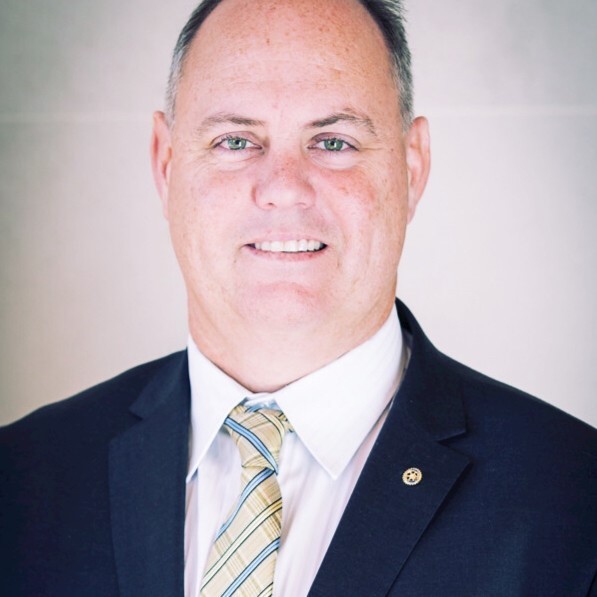Broker profile: 'you've got to be a chameleon'
 Perth-based Aviso WA Broking GM Mike Thomas, pictured, says he has seen much of Australia and been invited into “lots of different boardrooms and kitchens” during his 30 years of working in insurance and broking.
Perth-based Aviso WA Broking GM Mike Thomas, pictured, says he has seen much of Australia and been invited into “lots of different boardrooms and kitchens” during his 30 years of working in insurance and broking.
Tell us about your career.
Coming from a family of tradies, no one really knew anything about insurance, but after completing high school I applied for a junior clerk role that was advertised in the local paper not knowing exactly what that role was, and I was fortunate to start my insurance career with Commercial Union in their Rural division.
In my 15 years with CU/CGU I worked with some amazing people across multiple offices from Perth, Melbourne, Albury to Bunbury, with a majority of rural-focused roles.
After my time with CGU, I became the WA State Manager for Ansvar Insurance, then the State Relationship Manager for Lumley Insurance before it merged with IAG/CGU.
That’s when I went broking, in 2014.
In some ways, you've got to be a chameleon in this job and roll with the constant changes that happen across the industry. Insurance is amazingly diverse and only limited by your mindset and ability to try new things, which was my attitude when I moved from being an insurer to broker.
I have been lucky over a long career being exposed to a lot of different things over a long period of time which gave me knowledge and exposure to multiple different industries – from transport to farms, from churches to corporate ISR and everything in between. I can now use this knowledge to help my current clients and team.
Every experience gives you a deeper understanding and I have been lucky enough that I've seen an amazing amount of Australia and been invited into lots of different boardrooms and kitchens over the years.
Is broking a better fit for you?
I believe so. On the broking side, we are closer to the customer. You end up becoming a trusted partner and adviser, with clients who become loyal friends.
Unfortunately, the modern insurer is further removed from the customer than ever before, they don't get to see enough of the trials and tribulations that our clients go through. Most of the underwriting is now done from behind a screen with most policies being transacted via Sunrise or SCTP.
I joined Aviso WA Insurance Brokers three years ago as the GM – Broking after moving back to WA from Ballarat, Victoria. Since then, our business has grown significantly across WA from our base in Midland. We have attracted a number of quality people to join the team and are opening a number of new regional offices across WA.
Today Aviso WA Insurance Brokers has over 35 quality staff across five offices and a great reputation. We can now add longevity with the business recently celebrating 40 years of insurance broking in WA.
What’s your broking style?
I still love the face-to-face meetings, being able to sit across the kitchen table or a boardroom table is gold. We’re still doing business pretty much the same way we used to do it many years ago.
In our business we take the approach that we still need to risk-manage farm and rural business as much as you would with a large commercial program. It's still one of the most risky and dangerous industries to work in, with more people dying or being seriously injured on farms than pretty much any other workplace.
So we're not just selling them insurance, we are now assisting them with risk management, HR and workplace health and safety. We're also moving into weather parametric insurance, which is trying to cover our clients for weather-based issues – too much rain, not enough rain, frost, too hot etc. Farming has become more sophisticated – so their insurance needs to as well.
How is the insurance market?
Rural and farm insurance has not been flavour of the month for many insurers for many years. You can see that with the number of insurers who have removed themselves from this space in the last 15 years or so. Now we have Allianz, CGU and QBE writing farm insurance and the rest being underwriting agencies.
The devastation of recent bushfires coupled with Cyclone Seroja in 2020 has all had a really detrimental effect on people wanting to give their capacity to farm insurance. When you have a cyclone in the area that doesn't usually get a cyclone, it just made a meal of that area – some fairly substantial losses in a market that was already limited.
On top of that, there’s trying to get people to come and repair anything. We're getting this double whammy where you're trying to replace something that you insured for $200,000 and now it’s $400,000, and you have got no one to come out and build it. It's a bit of a concern.
What changes have you seen?
The number of farmers in WA has shrunk over time. In time gone past we would have had three or four farmers in the same space as we have one farm now, so that's three farming families who have left town or the community.
It means they’re now farming larger properties. Customers are farming more than 30,000 to 40,000 hectares, which is the size of a country.
The use of technology in farming now is more than it was ever in the past. With less people around to help farm these properties, technology has had to improve the way they farm and they are now more savvy than ever before – the size of the tractors and combinations with the headers, and the way that they can farm land that they couldn’t do years ago.
